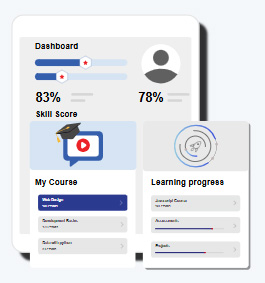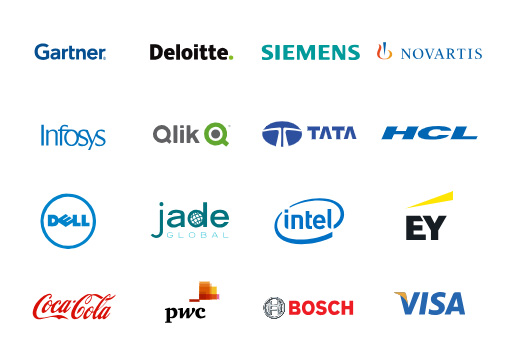Salesforce Online Training
Salesforce in the data center has been a trend for years, but virtual desktops have been slow to catch on. VMware View is VMware’s entry in the virtual desktop space which competes with the other major players, namely Citrix XenDesktop and Microsoft Remote Desktop. Virtual desktops provide several advantages over traditional full workstations including easier management and simpler provisioning.

- Learn & practice Course Concepts
- Course Completion Certificate
- Earn an employer-recognized Course Completion certificate by Ziventra.
- Resume & LinkedIn Profile
- Mock Interview
- Qualify for in-demand job titles
- Career support
- Work Support

Salesforce Online Training Content
You will be exposed to the complete VMware View Training course details in the below sections.
Topic-wise Content Distribution
Introduction to Cloud Computing & CRM/ERP
- What is Cloud Computing?
- SAAS / PAAS / IAAS Explained
- Types of Cloud
- Examples of Cloud Products & Companies
- What is CRM / ERP?
- Different Segments of CRM
- CRM Entities
- CRM Process Flow
Salesforce Overview & Force.com Platform
- What is Salesforce?
- About Salesforce Company & Products
- Existing Competitors
- Force.com Platform Overview
- Creating Developer Environment
- Understanding Salesforce & Organization Settings
- Licensing Types
- Declarative Customization vs Programmatic Customization
Salesforce Administration
- Salesforce Organization Creation
- User Setup & Org Settings
- Licensing Details
- Declarative vs Programmatic Customization
- Understanding Salesforce Structure:
- Application Creation
- Object Creation
- External Objects & IDs
- Field Creation, Deletion & Types
- Dependent Fields
- Field Tracking
- Formula Fields
- Validation Rules: Standard & Custom
Business Processes & CRM Objects
- CRM Objects & Relationship Model
- Sales Process Overview
- Service Process
- Lead Conversion Process
- Sales Productivity Features
Security Settings
- Network Security & Auditing
- Organization-Wide Defaults
- Profiles
- Record Types
- Custom Buttons, Links & Actions
- List View Customization
Reports & Dashboards
- Types of Reports: Join, Tabular, Summary, Matrix
- Date Filters & Bucket Fields
- Custom Report Types
- Report Scheduling & Sharing
- Dashboards: Usage & Management
- Folder Access & Storage
Data Management
- Data Loader Usage
- Data Import & Export
- Introduction to Workbench
Relationships in Salesforce
- Lookup Relationship
- Master-Detail Relationship
- Rollup Summary Fields
- Many-to-Many Relationship
- Hierarchical Relationship
- Schema Builder
Salesforce Automation
- Workflow Rules
- Workflow Actions
- Time-Dependent Actions
- Approval Processes
- Field Updates & Recursion
Salesforce Apps & Campaign Management
- AppExchange Overview
- Campaigns, Campaign Members & Campaign Influence
- Team Management: Queues & Public Groups
Salesforce Standard Objects
- Account Teams
- Opportunity Teams
- Product & Price Book
- Solution Management
- Ideas, Answers & Knowledge
- Activity Management & Content
- Case Activities, Teams, Assignment & Escalation Rules
- Lead Activities: Conversion, Web to Lead, Assignment & Auto-Response Rules
Salesforce Mobile & App Deployment
- Salesforce1 Mobile Features
- Declarative Customization in Salesforce1
- Global & Object-Specific Actions in Salesforce1
- Action Layouts in Salesforce1
- Application Lifecycle Milestones & Considerations
- Sandboxes & Types
- Change Sets & Types
- Package Types
- Deployment Best Practices
Salesforce Development
- Console Environment & Development Mode
- Visualforce Overview & Components
- Apex Basics: Triggers, Classes, Controllers, Helper & Handler Classes
- Usage of JavaScript in Visualforce Pages
- Salesforce Governor Limits
- Development Best Practices
- Salesforce Sites
- Lightning Basics & Declarative Options for Lightning Components
Salesforce Integration
- Introduction to Integration
- Inbound & Outbound Integration
- Programmatic Integration:
- Web Services (Creating & Consuming)
- SOAP API
- REST API (With & Without Authentication)
- OAuth 2.0 Authentication
- Web Services Assignment (Creating & Consuming)
Project Implementation
- CRM Project (Campaign Management, Lead Management, Opportunity Management)
- Integration Project (Advanced Development)
- AppExchange Product Overview
Request More information
Hands on Salesforce Projects
Our Salesforce Training course aims to deliver quality training that covers solid fundamental knowledge on core concepts with a practical approach. Such exposure to the current industry use-cases and scenarios will help learners scale up their skills and perform real-time projects with the best practices.
Training Options
Choose your own comfortable learning experience.
On-Demand Training
Self-Paced Videos
- 30 hours of Training videos
- Curated and delivered by industry experts
- 100% practical-oriented classes
- Includes resources/materials
- Latest version curriculum with covered
- Get one year access to the LMS
- Learn technology at your own pace
- 24×7 learner assistance
- Certification guidance provided
- Post sales support by our community
Live Online (Instructor-Led)
30 hrs of Remote Classes in Zoom/Google meet
- Live demonstration of the industry-ready skills.
- Virtual instructor-led training (VILT) classes.
- Real-time projects and certification guidance.
For Corporates
Empower your team with new skills to Enhance their performance and productivity.
Corporate Training
- Customized course curriculum as per your team’s specific needs
- Training delivery through self-Paced videos, live Instructor-led training through online, on-premise at Mindmajix or your office facility
- Resources such as slides, demos, exercises, and answer keys included
- Complete guidance on obtaining certification
- Complete practical demonstration and discussions on industry use cases
Served 130+ Corporates

Our Training Prerequisites
Prerequteis Of Salesforce Online Training :
Basic Computer Skills:
Comfortable using computers, internet browsing, and basic software applications.Understanding of CRM Concepts:
Basic knowledge of Customer Relationship Management (CRM) principles is helpful but not mandatory.Interest in Cloud Computing:
Enthusiasm for cloud-based platforms and business process automation.No Prior Salesforce Experience Required:
This course is beginner-friendly and does not require any previous Salesforce knowledge.Basic Programming Knowledge (Optional):
For development modules, familiarity with programming concepts or languages such as JavaScript or HTML is beneficial but not essential.
Talk to our team directly
Schedule A Free Consultation
